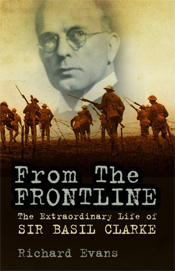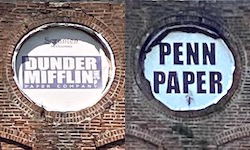PR pros may want to check out the new biography of Basil Clarke that is due out next week. The respected Guardian columnist Roy Greenslade wrote a preview June 6, in which he noted that Sir Basil is "credited with being the father of PR in the U.K."  With all respect to Roy, the profession deserves better.
With all respect to Roy, the profession deserves better.
Clarke, who died in 1947, began his career as a reporter for the Manchester Guardian and did stints during WWI at the Daily Mail and Reuters. Greenslade wrote that Clarke "became enamored with the possibilities of PR and entered the most controversial phase of his life by organizing the propaganda offensive against the IRA during the Irish War of Independence (1919-1922)."
That so-called PR work included justifying terror waged against the Irish people by the notorious Black and Tans. Organized by then Secretary of War Winston Churchill, the 7,000 member Black and Tans were a paramilitary force of thugs that raided and burned towns and villages across Ireland and assassinated suspected members of the Irish Republican Army. [Disclosure: My dad always said his father fled Ireland in 1921 a step ahead of the Black and Tans.]
The Black and Tans were implicated for playing a role in the first "Bloody Sunday," the Nov. 21, 1920 massacre of spectators at a Gaelic football game at Dublin's Croke Park, which led to the deaths of 13 civilians.
Greenslade noted that Clarke's work as British mouthpiece included "justifications for the activities of the hated Black and Tans culminated in the issue of a false statement about the reasons for the police opening fire on a football crowd in Dublin, killing 14 and wounding 65."
In fact, his pro-government work, "which was influential in the way Britain's press covered that episode," was why he was dubbed a knight.
Geez.
The British government finally saw the light. A Labour Commission report in 1921 said that in forming the paramilitary unit, the government had "liberated forces which it is not at present able to dominate." The actions of the Black and Tans drew strong criticism from King George V, inflamed public opinion in the U.K. and ultimately led to a peace treaty.
Clarke went on to found Britain's first PR firm, Editorial Services Ltd. He penned the first code of ethics for PR. Was he driven by guilt for his lie regarding the Croke Park shootings?
Greenslade's piece carries the headline, "The man who invented public relations." That's offensive. To his credit, Greenslade notes that Clarke "remains a hated figure in Ireland."
Give me Eddie Bernays and his Torches of Freedom, any day. He remains the father of PR in my book.


 AB InBev has hired Donna Lorenson as chief communications officer and elevated the PR function to the senior leadership structure in the aftermath of the Bud Light marketing disaster.
AB InBev has hired Donna Lorenson as chief communications officer and elevated the PR function to the senior leadership structure in the aftermath of the Bud Light marketing disaster. Tunheim handled the Minnesota USA World Expo bid committee, which on June 21 congratulated Serbia for landing the 2027 event.
Tunheim handled the Minnesota USA World Expo bid committee, which on June 21 congratulated Serbia for landing the 2027 event. United Minds, management consultancy, has launched Myriant, a business resiliency offering to help clients deal with the challenges during this era of misinformation, polarization and geopolitical upheaval.
United Minds, management consultancy, has launched Myriant, a business resiliency offering to help clients deal with the challenges during this era of misinformation, polarization and geopolitical upheaval.  ImageShield, which guards against online image abuse, is looking for a communications pro to handle its PR and marketing campaigns.
ImageShield, which guards against online image abuse, is looking for a communications pro to handle its PR and marketing campaigns. Who knew that there is a real paper company, Pennsylvania Paper & Supply, inside the iconic building seen at the opening of every episode of “The Office?”
Who knew that there is a real paper company, Pennsylvania Paper & Supply, inside the iconic building seen at the opening of every episode of “The Office?” 


 Have a comment? Send it to
Have a comment? Send it to 
No comments have been submitted for this story yet.